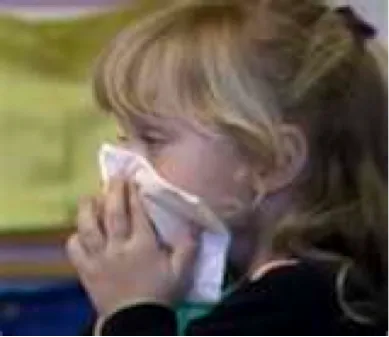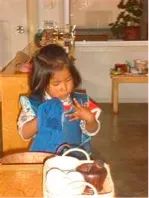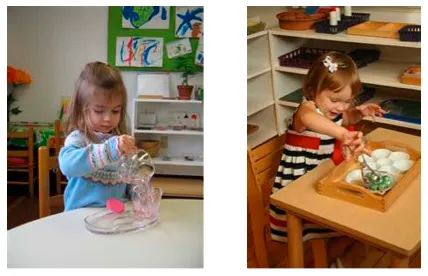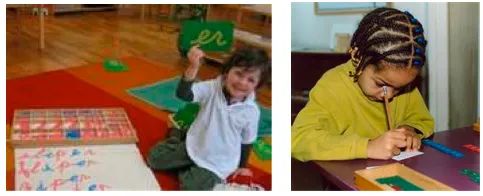Protecting Our Children's Growing Minds
From the moment we find we are pregnant, and often even before when we may be preparing to conceive, we give up things we know are bad for the forming fetus. If we smoke or drink, we stop. If we are eating poorly we try to eat better. Once the baby is born, we take our children home from the hospital in car seats to protect them from danger.
We guard the physical well-being of our children in numerous ways. We child proof our homes when they start to crawl and toddle around. We fence our yards so they can play outside. We are careful who we allow to play with our children. We make sure they get adequate sleep and plenty of nourishing food to our best ability. We bathe them and teach them to wash their hands and brush their teeth. We try to keep them safe.

 Are we as careful of the child’s mental and emotional states and try to protect them as well? Do we even really know what they need?
Are we as careful of the child’s mental and emotional states and try to protect them as well? Do we even really know what they need?


During the early years of life the child is constructing himself. It is truly a long, difficult task, with certain windows of opportunity for maximum development. Montessori wrote: “Just as the embryo becomes a child and a child becomes a man, so the human personality is formed through its own efforts….
“We should regard this secret effort of the child as something sacred. We should welcome its arduous manifestations since it is in this creative period that an individual’s future personality is determined.”
 Montessori spent a lifetime working to understand and serve the needs of children
Montessori spent a lifetime working to understand and serve the needs of children

Mental and emotional hygiene
Montessori raised the rather simple suggestion that perhaps it is time to pay as much attention to mental and emotional hygiene as is to the physical hygiene of or children. She wrote those words in the middle of the last century and of course child psychology and child psychiatry has come a long way since then. However, it is generally looked at from the perspective of treating illness rather than defining what prevents illness. Harmony, respect, freedom – these are all words we would consider in regards to the healthy development of our children.
Again, Montessori gives us a unique way to look at it. She says that when we look and see violent children, rebellious children, non-performing children – it becomes painfully clear that we do not yet know the best mental and emotional hygiene for children and people. She believed that in general our world does not understand how to raise human beings. Her work for more than 40 years was devoted to observing children to determine the ideal situations where they will flourish.
Her findings were that children need room to move. They need hands-on materials that meet their developmental needs. They need to be able to choose what they want to work with on a given day and be allowed to repeat their work as many times as desired. They need to be challenged and allowed to move ahead incrementally as we take complex tasks apart into smaller sections so they feel confident they are succeeding at each step in what we call in Montessori, “isolation of difficulty.” They do not care about rewards; they do not care about punishments. They need simply to be shown what to do and then allowed to do it.

The end result of these simple actions is that children become what Montessori called “normalized.” They calm down, they become joyful, independent learners. They learn what may seem to some to be prodigious amounts of information and skill, but without in any way being pushed. They love to learn!


Whether it is learning to read and spell or calculate math problems, learning about the continents or the parts of a flower, children’s brains need to learn as much as their lungs need to breathe and their hearts need to beat.
Preparation of the adult
Montessori teachers are trained to present lessons simply and sequentially. They are trained in how to create an environment that is beautiful and harmonious, containing what the child needs for all aspects of his growth. They are trained to prepare an environment that is calming, encouraging and interesting. A study from Lander University several years ago discovered that 80% of Montessori children could solve problems between themselves without involving the teacher, while only 20% of public school children could solve problems between themselves. The carefully prepared environemnt works!
Many of us parents intuitively know how to prepare a calming, intersting environment for our children. Some of us struggle with this for ourselves and our families. Montessori counsels us to become more sensitive to the child’s needs.
Montessori’s counsel to us
“The adult must acquire the sensitivity to recognize all the child’s needs; only thus can he give the child all the help that is necessary. If we were to establish a principle, it would be that what is necessary is the child’s participation in our lives, for in that period in which he must learn to act, he cannot learn well if he does not see how, just as he could not learn language if he were deaf. To extend to the child this hospitality, that is, to allow him to participate in our lives, is difficult, but costs nothing; it depends solely on the emotional preparation of the adult. The child, who does not act, asks nothing; his presence is practically a spiritual one.”
She gives us several principles to help us this participation.
1. Respect all reasonable forms of activity and try to understand them.
2. Support as much as possible the child’s desire for activity. Do not wait on your child; rather educate him for independence, corresponding to the needs of his spirit.
3. Be watchful in your relationships with your children, and be aware that they are extremely sensitive to external influences and require peaceful sameness.
When we deeply understand the needs of our child, we can do a better job in protecting their growing hearts and minds, as well as their bodies. Our next blog, The Formation of the Mind, will talk more about this important topic.























